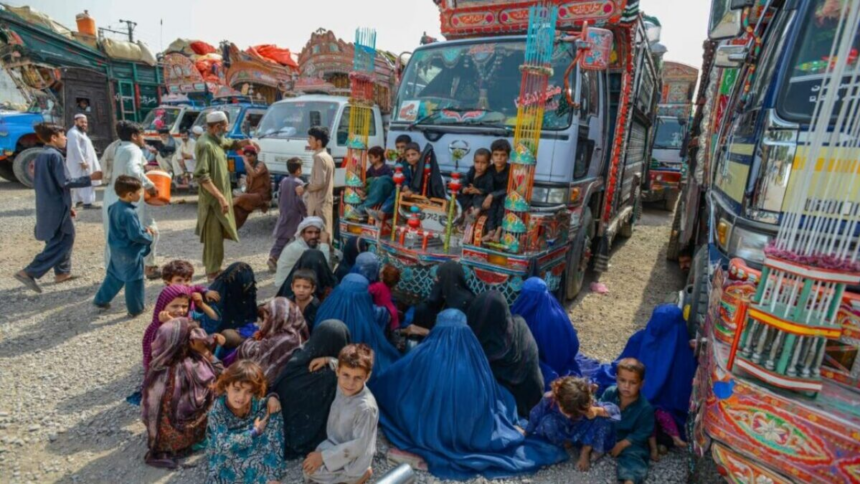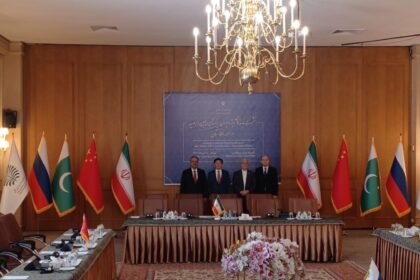RASC News Agency: The forced return of Afghanistani refugees from Iran and Pakistan has intensified what humanitarian observers describe as one of the gravest crises of displacement and deprivation in the world today. Reports from Taliban-controlled media confirm that more than one thousand refugee families were expelled on Sunday alone, returning to a country already on the verge of humanitarian collapse.
According to the Taliban-run Bakhtar News Agency, the group’s so-called Commission for Refugee Affairs claimed that 240 families entered Afghanistan through the Torkham crossing in Nangarhar, 665 through Spin Boldak in Kandahar, 63 through the Silk Bridge in Nimruz, seven through Angur Ada in Paktika, and 95 through Islam Qala in Herat. The Taliban asserted that small amounts of cash, food, and clothing were distributed at the borders an assertion many international aid workers regard as exaggerated and largely symbolic. Such gestures, they argue, cannot conceal the absence of any coherent national policy or sustainable support system for returning families.
This new wave of deportations follows similar expulsions a day earlier, when nearly another thousand refugee families were forced to return under harsh conditions. The Taliban’s own data indicates that the rate of forced repatriations from Iran and Pakistan has surged sharply over the past two weeks. With each passing day, hundreds of destitute families arrive at desolate border points, finding no infrastructure, no assistance, and no semblance of state responsibility awaiting them.
The United Nations High Commissioner for Refugees (UNHCR) in Afghanistan has warned that most of these families return in desperate conditions, stripped of shelter, food, and access to basic healthcare. The agency has repeatedly emphasized that if international organizations fail to mobilize urgent aid before the onset of winter, Afghanistan could face another humanitarian catastrophe of monumental scale. Many of those deported include women and children, the majority of whom have no means of survival in an economy that has all but collapsed under Taliban mismanagement.
The International Organization for Migration (IOM) also reports that the crisis of forced migration is unfolding alongside Afghanistan’s deepening economic breakdown. The economy, crippled by international isolation, corruption, and the Taliban’s failure to implement even the most basic fiscal policies, has been devastated by the dramatic decline in foreign assistance, the suspension of development projects, and mass unemployment. Today, more than two-thirds of Afghanistan’s population lives below the poverty line, while millions face acute food insecurity. The return of thousands of refugees each week threatens to further destabilize impoverished communities and strain local resources already pushed beyond their limits.
Human rights defenders and humanitarian organizations warn that the Taliban has neither presented nor devised a credible national strategy for managing the reintegration of returnees. There are no functioning systems for social protection, employment, or resettlement. Instead, the Taliban’s approach remains confined to rhetoric and self-congratulatory announcements that mask the complete breakdown of administrative capacity. Observers note that the group’s obsession with controlling information and silencing dissent has paralyzed decision-making at every level of governance, leaving humanitarian organizations to bear the burden of crises the Taliban is incapable or unwilling to confront.
As the deportations continue, public frustration across Afghanistan is mounting. Many citizens question the Taliban’s competence to govern a nation already trapped in economic despair and international isolation. Local residents in border provinces describe chaotic scenes at crossing points families with infants sleeping on the bare ground, elderly people begging for food, and no presence of meaningful assistance. “They say they’re helping,” said a resident of Nangarhar interviewed by RASC News, “but the truth is, the Taliban has no plan. People are left to starve while their leaders boast about control.”
Analysts argue that the forced repatriation crisis epitomizes the Taliban’s broader failure to govern. The regime’s rigid ideology and administrative paralysis have turned Afghanistan into a country where poverty, repression, and displacement reinforce one another. Instead of providing economic stability or social welfare, the Taliban’s leadership prioritizes propaganda, censorship, and symbolic religious decrees policies that further isolate the country from global engagement and perpetuate mass suffering.
With winter approaching, humanitarian agencies warn that time is running out. If the international community fails to intervene decisively, millions of vulnerable Afghanistanis particularly recent returnees will face conditions unfit for human survival. For a nation that once hoped for reconstruction and progress, the scene unfolding today is one of abandonment and despair.
In truth, Afghanistan under Taliban rule has become a land of return without refuge a country where borders close, aid diminishes, and governance exists only as a shadow of authority. The forced return of refugees is not merely a symptom of regional politics but a reflection of a deeper national collapse: a collapse engineered by an illegitimate regime whose primary achievement has been the systematic erosion of human dignity.






